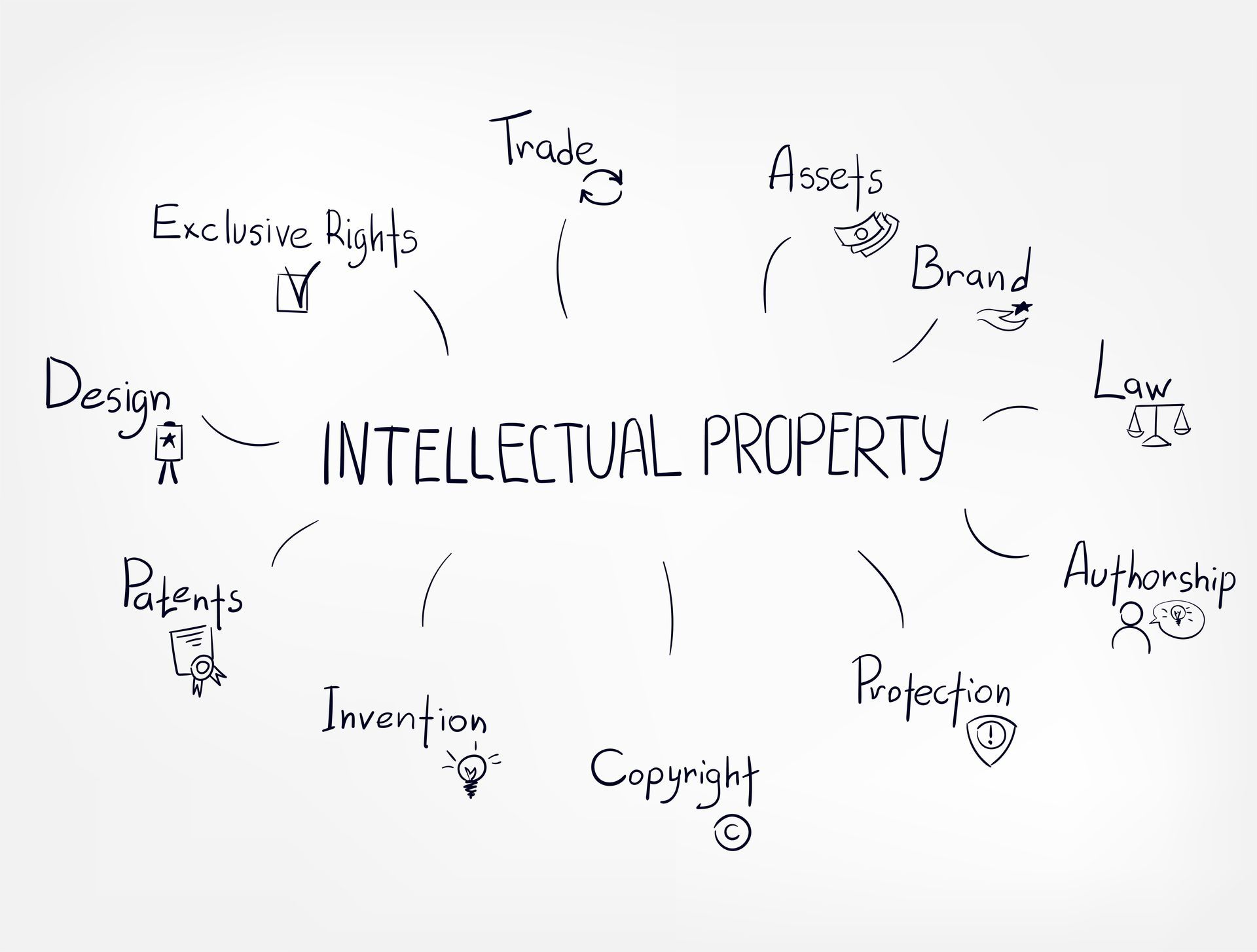Blog

In our modern economy, intellectual property (IP) holds immense value for businesses that have a vital interest in protecting their innovations and creations.
Intellectual property law forms the backbone of protection for these intangible assets, offering a strong framework of rights and protections. The four pillars of intellectual property law consist of copyrights, trademarks, patents and trade secrets.
Copyrights
Copyright law grants creators exclusive rights to their original works of authorship, including literary, artistic, musical and dramatic works. Copyright protection automatically applies upon the creation of the work in a tangible form, such as writing, recording or drawing.
The important aspects of copyrights consist of:
- Scope of Protection: Copyrights protect the expression of ideas rather than the ideas themselves. This includes works such as books, music, films, paintings, software code and architectural designs.
- Duration: Copyright protection typically lasts for the life of the author plus an additional 70 years. After this period, the work enters the public domain and can be freely used by anyone.
- Exclusive Rights: Copyright holders have exclusive rights to reproduce, distribute, perform and display their works. Others must obtain permission or a license from the copyright owner to use the protected material.
Trademarks
Trademarks are distinctive signs, symbols, logos or phrases used to identify and distinguish goods or services in the marketplace. Trademark law protects consumers from confusion by ensuring that they can identify the source of goods or services based on recognizable trademarks. They also protect brands from having their reputations damaged by lookalike or knockoff competitors and from having competitors appropriate their marketing or branding collateral.
Key aspects of trademarks include:
- Registration: While trademark rights can be established through use in commerce, registration with the United States Patent and Trademark Office (USPTO) provides additional legal protections and benefits.
- Distinctiveness: Trademarks must be distinctive and not merely descriptive of the goods or services they represent. Fanciful, arbitrary or suggestive marks are considered inherently distinctive and receive stronger protection.
- Enforcement: Trademark owners have the right to prevent others from using confusingly similar marks in connection with similar goods or services. Enforcement actions may include cease-and-desist letters, administrative proceedings or litigation in federal court.
Patents
Patents grant inventors exclusive rights to their novel inventions for a limited period. This is typically 20 years from the date of filing. Patent protection encourages innovation by providing inventors with a temporary monopoly on their intellectual property, while the time limit helps curtail the risk for long-term monopolistic behavior that might discourage further development and innovation or hurt consumers.
Main aspects of patents include:
- Subject Matter: Patents can be granted for processes, machines, compositions of matter or improvements thereof. To be patentable, an invention must be novel, non-obvious and useful.
- Application Process: Patent protection is obtained through a rigorous application process, including the submission of detailed descriptions, claims and drawings of the invention. Patent applications are examined by patent examiners to determine their patentability.
- Exclusivity: Patent holders have the exclusive right to make, use, sell or license their patented inventions. Others are prohibited from making, using or selling the patented invention without the patent holder's permission.
Trade Secrets
Trade secrets are valuable, confidential information that provides a competitive advantage to businesses. Unlike copyrights, trademarks and patents, trade secrets are not registered with a government agency. Instead, trade secret protection relies on maintaining the secrecy of the information.
Key aspects of trade secrets include:
- Definition:
Trade secrets involve a wide range of confidential information, including formulas, recipes, processes, customer lists and proprietary technology.
- Protection Measures:
To qualify as a trade secret, information must be kept secret through reasonable efforts to maintain its confidentiality. This may include implementing confidentiality agreements, restricting access to sensitive information and implementing security measures.
- Enforcement: Trade secret owners have legal recourse against those who misappropriate or disclose their trade secrets without authorization. These enforcement actions may include civil lawsuits for damages or injunctive relief against the unauthorized use or disclosure of trade secrets.
Does Your Business in Atlanta Need Defense Assistance Against a Liability Claim?
When it comes to legal representation, trust is of the utmost importance. The Law Office of Cameron Hawkins in Atlanta offers the expertise, dedication and integrity you need to navigate your legal challenges with confidence. Don't leave your case to chance—trust Cameron Hawkins to advocate fiercely on your behalf.
Contact us today to schedule a consultation and take the first step toward restoring your peace of mind.











